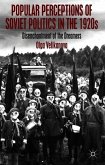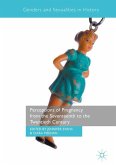Initially propounded by the philosopher Jürgen Habermas in 1962 in order to describe the realm of social discourse between the state on one hand, and the private sphere of the market and the family on the other, the concept of a bourgeois public sphere quickly became a central point of reference in the humanities and social sciences. This volume reassesses the validity and reach of Habermas's concept beyond political theory by exploring concrete literary and cultural manifestations in early modern and modern Europe. The contributors ask whether, and in what forms, a social formation that rightfully can be called the "public sphere" really existed at particular historical junctures, and consider the senses in which the "public sphere" should rather be replaced by a multitude of interacting cultural and social "publics." This volume offers insights into the current status of the "public sphere" within the disciplinary formation of the humanities and social sciences at the beginning of the twenty-first century.
Hinweis: Dieser Artikel kann nur an eine deutsche Lieferadresse ausgeliefert werden.
Hinweis: Dieser Artikel kann nur an eine deutsche Lieferadresse ausgeliefert werden.








